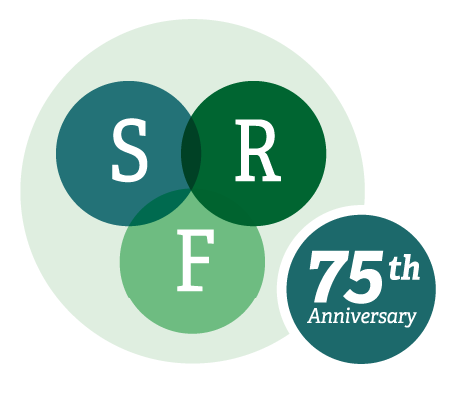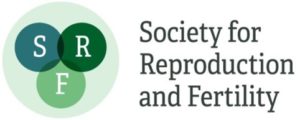Can you briefly describe your career journey, highlighting when you took your career break?
I had my early education (up to O-levels) in India and then came to the UK for A-levels and university. I originally wanted to study medicine but didn’t get into medical school and decided to do Physiology at Kings College London (KCL). I loved Physiology, especially Reproductive Physiology, and half-way through my degree decided medicine was not for me. Towards the end of my degree, my final year project supervisor, Professor Mike Bradbury, offered me a fully funded PhD in Neurophysiology looking at Zinc Transport across the Blood-Brain-Barrier. However, I needed to think about it for many reasons as firstly I was fed-up of exams and studying and secondly, if I was going to do a PhD, I wanted it to be in repro.
I decided to work and did a variety of administrative jobs but after a few months of this mundane activity, I made the decision to give the PhD a go. I was advised wisely that a key factor in considering a PhD was not just the field/area of study but the supervisor, and that the wrong choice of supervisor could really impede completion of a PhD. Mike was an amazing scientist and supervisor. He was patient, meticulous in his experimental approach, rigorous data analysis and record keeping – all the skills that he taught me have held me in good stead till this day. All was going to plan with the PhD, and I had a post-doc lined up at University College London (UCL) to look at the effect of surfactant in foetal sheep lungs, with Professor Dafydd Walters. Whilst I was writing up my thesis, I got pregnant and realised I could not start my post-doctoral career as I would be dealing with radioactive material and didn’t want to take any risks whilst pregnant. I withdrew from the post-doc and decided to take a career break to look after my daughter.
How did you return to work after your career break? Did you face any challenges as your tried to return to work, and if so, how did you overcome these?
I had my son two and a half years after having my daughter and during that time I was looking to return to work part-time. I had a colleague at KCL who was in the same position as myself and we approached some PIs in the Physiology department to consider us for a post-doc job share. However, there did not seem to be much appetite at that time to help us make this work and our plans never came to fruition. In the end I had a career break of 7 years. I didn’t plan for it to be so long, but it was circumstances that lead to that point.
About year 6 into my career break, I decided that I would like to get back to work but with two children I thought if I retrained as an embryologist, that may offer me a better work-life balance. I was advised to do the MSc in Human Reproductive Biology at the Royal Postgraduate Medical School (RPMS) at Hammersmith Hospital (which later became part of Imperial), as that would help me get into an IVF clinic and update my lab skills. I couldn’t get funding but then Professor Robert Winston offered me one of the first scholarships, for which I was very grateful. I started that in 1996, but half-way through my husband was diagnosed with cancer. I took another career interruption but sadly my husband passed away a few months after his diagnosis. I managed to finish the MSc subsequently.
By this stage I realised that I did not want to be an embryologist but would like to return to science and reproductive physiology. I obtained a post-doc covering maternity leave which enabled me to get my skills up to speed, followed by another three-year post-doc at Imperial. When that finished, I got a post-doc position at St. George’s University of London (SGUL) with Professor Helen Mason and Professor Saffron Whitehead, who were wonderful mentors. Four years later I got a lectureship at SGUL and have remained here ever since. I did find the post-doc periods very engaging and fruitful scientifically but also super stressful in terms of the lack of financial permanency, especially as a single parent. I was able to make the transition from a post-doc to a permanent position due to the teaching opportunities and excellent mentoring offered to me at SGUL.
What advice would you give someone else in academia that was considering taking a career break?
Whilst there may never be a right time to take a break in an academic career, as reproductive biologists we know that there is a right time physiologically to have children. Of course, career breaks can be for other reasons, such as caring ones or a mental health crisis, for which there is sometimes no choice in the timing.
Careers nowadays are much more flexible and less linear than in the past, so no one should be afraid of taking a career break for whatever reason. Having said that, a scientific career does not have a defined path unlike medicine, which can make progression tricky to navigate. From my personal experience having children in my mid-twenties was a boon, and it left me with plenty of time to pursue my career, despite a long career break and change of subject area.
What advice would you give someone that was trying to return to academia after a career break?
I think there is more help available now to return to academia, which was not there when I had my career break. For example, organisations like The Daphne Jackson Trust, enable scientists of all disciplines to return to a STEM career after a break of more than two years. Many funding organisations are aware of career breaks for family/caring reasons and factor these into their funding applications.
I would advise to try and keep in touch with mentors/other sympathetic academics and colleagues who can help you transition back when the time is right. The internet and access to online webinars, articles etc can also make keeping abreast of scientific breakthroughs and advances in your field much easier take advantage of this. The whole molecular biology revolution passed me by whilst I was on my career break!
Whilst you are on your break and if time/finances allow, maybe consider doing a PGCert in Healthcare and Biomedical Education qualification, which many universities offer part-time, or getting your fellowship of the Advanced HE. These will stand you in good stead for a return to university academia. When you return don’t be afraid to ask younger colleagues, who may have more experience in particular areas, for help. Also be honest about any challenges or training needs you may require on your return.
One thing I have had to accept and acknowledge is that my career progression may have been considerably slower than that of my contemporaries, but I have no regrets in the time that I had off with my husband and children.

